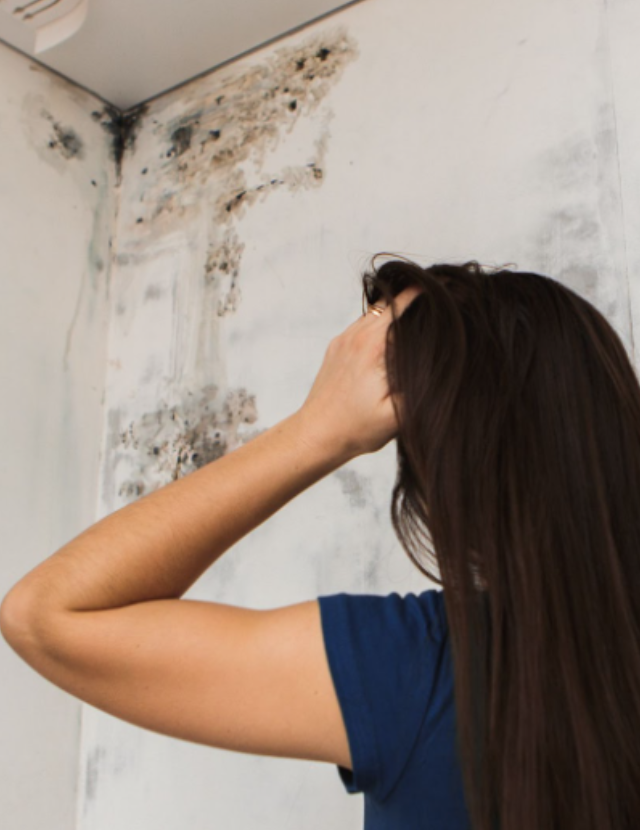Policy Win Ensures Healthier Housing for California Renters
Highlights

In 2023, PHI’s Regional Asthma Management and Prevention program (RAMP) and partners helped to pass California’s AB 548, making it easier to discover and correct severe health and safety problems in multi-unit housing.
6.8M renters in multi-unit rental housing with better protections from mold, cold and pests, thanks to AB 548 sponsored by RAMP
-
Focus Areas
Chronic Disease Prevention, Environmental Health -
Issues
Asthma -
Expertise
Coalition & Network Building, Public Policy Advocacy, Public Policy Development
Substandard housing conditions are an often-overlooked aspect of the California housing crisis, but according to the 2021 US Census Bureau’s American Housing Survey:
- Over 538,000 homes in California have “severely inadequate” or “moderately inadequate” plumbing and heating systems
- Over 1 million homes have signs of mice
- Over 1.4 million homes report having cockroaches
- Over 1.5 million identified plumbing or other water leaks
- Over 350,000 households have mold
With few alternatives, unhealthy housing has served as affordable housing for far too many Californians for far too long—but living in substandard housing conditions can result in serious health impacts. For example, deteriorated lead-based paint can lead to long-term developmental damage in children, while mold and cockroaches can both cause and exacerbate asthma.
The same 2021 survey shows that these unhealthy conditions are not shared evenly. According to the survey, renters are 2.6 times more likely to have mold and 2.5 times more likely to have cockroaches in their homes. And in California, 62.9% of African Americans and 55.5% of Latinxs rent their homes compared to just 44.7% of white people—demonstrating that there is a clear connection between the disproportionate exposure to unhealthy housing conditions and many of the health inequities experienced by low-income communities and communities of color.
A Reactive System
Existing state and local laws require landlords to adequately maintain their rental housing, while designating local code enforcement agencies as responsible for enforcing these health and safety standards. Because most jurisdictions rely on tenant complaints to identify potential substandard housing conditions, enforcement does not happen until families are exposed to pests, mold, a lack of heat or lead hazards. This reactive system triggered action only after renters experienced exposure and health impacts—placing the burden of inspections and improvements on the residents being harmed by these health risks.
Existing law also did not fully protect renters within the context of multi-family housing. In multi-family housing, a substandard condition in one unit often means there is an increased likelihood of substandard conditions in other units in the same property. Previously, each tenant complaint was taken individually, instead of triggering a larger scale inspection and response.
AB 548: Locally Tailored Solutions for Healthy Rental Housing
In 2023, PHI’s Regional Asthma Management and Prevention (RAMP) worked with partner organizations, tenants’ rights groups, community advocates and elected officials to pass AB 548, a bill that would introduce a proactive component to property inspections and reduce this burden on residents.
With support from Blue Shield of California Foundation, RAMP subcontracted with Tenants Together and the Coalition for Economic Survival to directly engage tenants in this work, ensuring that their voices, experiences and solutions are elevated in the fight to improve substandard housing conditions. Other partners include: Children Now, Community Action to Fight Asthma, Healing and Justice Center, Kern County Asthma Coalition, Law Foundation of Silicon Valley, and the Western Center on Law and Poverty. California State Representative Tasha Boerner Horvath served as a bill author and legislative champion.
Thanks to their collective efforts, AB 548 was signed into law in October 2023 by Governor Newsom. The bill, which mandates new protocols by January 1, 2025, will now require local enforcement agencies to develop locally specific policies and procedures for inspection of nearby units when it is determined that a substandard condition in a rental unit is severe enough it could be found in neighboring units.
AB 548 is adding a proactive element to a reactive enforcement system that prioritizes the health, safety and stability of residential renters. Jurisdictions are able to catch problems that previously went unreported or before they can escalate into more significant health hazards. The legislation is helping to address the state’s larger housing crisis, while also reducing the disproportionate exposure to unhealthy housing conditions in low-income communities and communities of color.
Work With Us
You change the world. We do the rest. Explore fiscal sponsorship at PHI.
Support Us
Together, we can accelerate our response to public health’s most critical issues.
Find Employment
Begin your career at the Public Health Institute.
